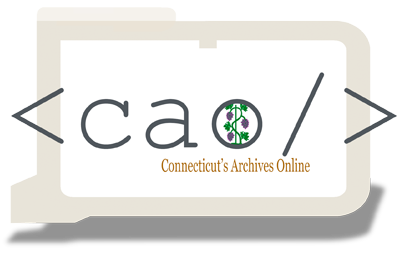Search Results
Top 3 results
view all 271
Top 3 results
view all 187
1944-1969 0.4 Cubic Feet 1 ledger Volume 1
1960s materials, 1960-1969 Box 5, Folder 2
1963-1973 0.4 Cubic Feet 1 ledger Volume 2
Top 3 results
view all 102
Top 3 results
view all 1018
Top 3 results
view all 66
Top 3 results
view all 202
Top 3 results
view all 299
Top 3 results
view all 629
Top 3 results
view all 90
 Connecticut's Archives Online
Connecticut's Archives Online 